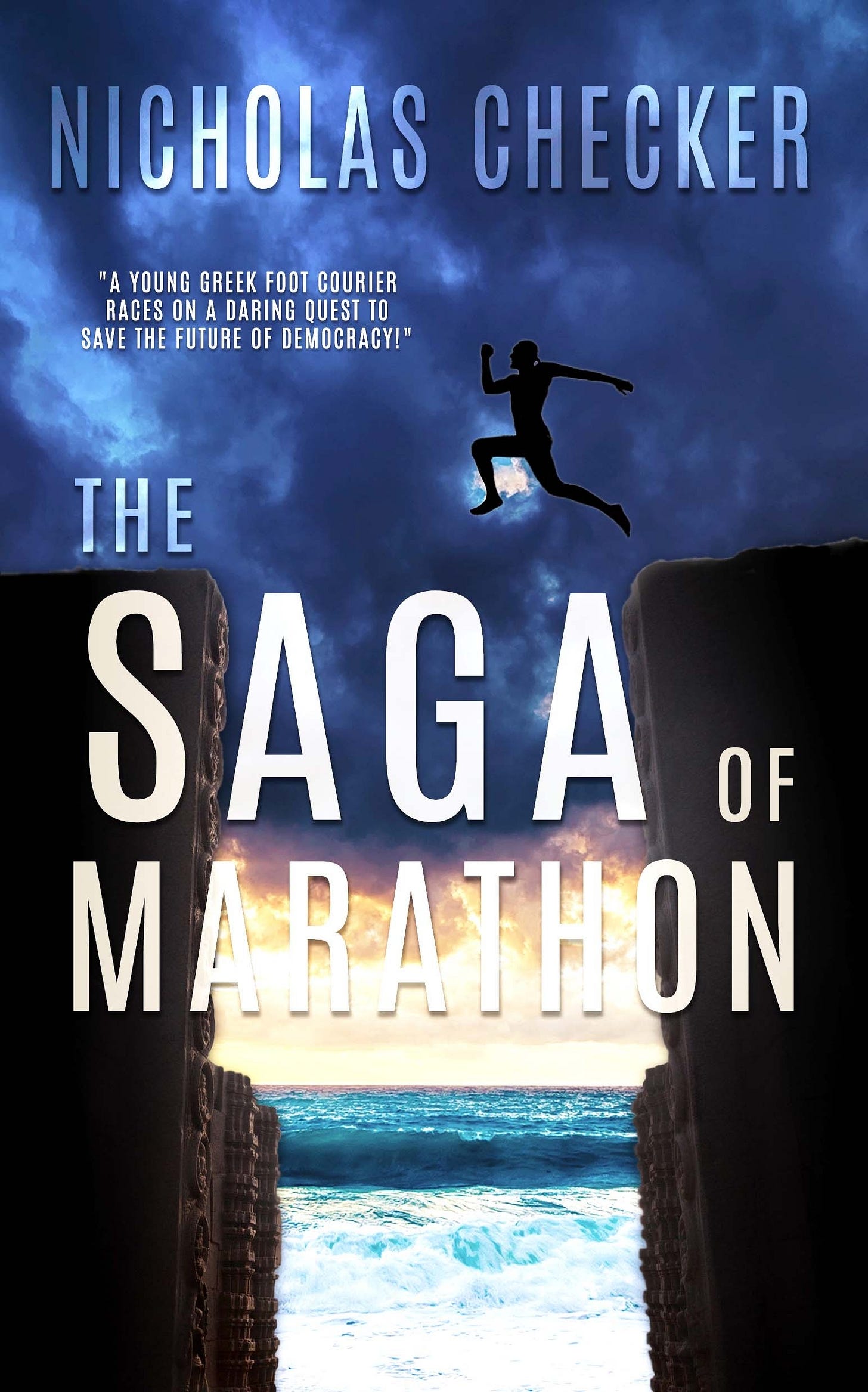Author Spotlight: Nicholas Checker
Independent Film Screenwriter, Author, Playwright Nicholas Checker Discusses His Work!
The Saga of Marathon -- blend of legend, mythology, and history where a young foot-courier races against peril after peril for the future of democracy.(Photo Courtesy of Author Nicholas Checker)
Hey Readers!
This week I am thrilled to welcome Screenwriter/Author/Playwright, Nicholas Checker to A Busy Lady’s Author Spotlight.
I love meeting other writers and learning more about their journey and works. One of my goals for A Busy Lady is not only to bring you content that empowers you, but that inspires you. Having a place where both indie and traditionally published writers can share their journeys is part of that plan!
About Nicholas Checker
Nicholas Checker is an enormously talented screenwriter, author and playwright whose works have gained national attention. He’s written independent films shown in cinemas and festivals nationwide. Shedim -- an eerie supernatural piece premiered at Niantic Cinemas and followed with impressive festiva…
Keep reading with a 7-day free trial
Subscribe to A Busy Lady to keep reading this post and get 7 days of free access to the full post archives.




